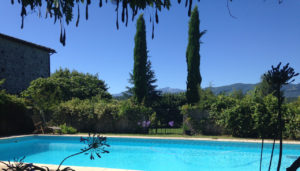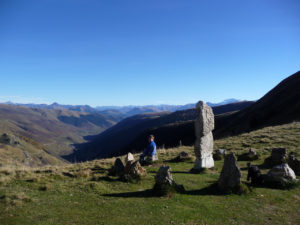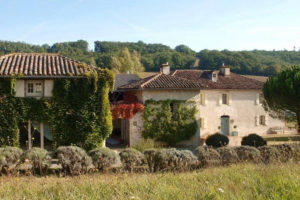
When you buy a property in France, you need to consider the type of legal ownership structure to choose which will have different inheritance and tax implications longer term. The main structures of ownership in France are:
- En Indivision and Communaute Universelle
- PACS Agreement
- En Tontine
- SCI (Société Civile Immobilière)
- En Viager
En Indivision/Comunaute Universelle
The majority of people in France buy property ‘en indivision’ which is a little like a ‘tenancy in common’. It is simple and is suitable for most married couples and civil partners, where each owner owns a share of the property and upon the demise of the first partner the deceased partner’s interest passes to his or her estate and not automatically to the surviving spouse. The problem with this for foreign buyers is that, in France, the estate is devolved in accordance with French inheritance law, which affords limited provision for the surviving spouse. Where the deceased had children, a proportion of the estate must pass to them and, where there are no children, surviving parents are entitled to a share. The surviving spouse has a limited entitlement in these circumstances. Where purchasers are unmarried, the surviving partner can be left with very little as blood relatives will inherit the deceased partner’s share unless other provision is made taking into account any reserved heirs’ entitlement. In addition, any inheritance received by the surviving partner will be taxed at 60% and, as a result of the forced heirship rules, only a percentage of a person’s estate can be freely dealt with under a will. So beware when buying in France because the Notaire will consider indivision to be the default position unless instructed otherwise.
In France, however, there are also a number of different marital regimes and many choose the adoption of the communaute universelle with a séparation de biens, which means effectively that each spouse holds their own individual assets separately from the other. Foreign couples who purchase property in France often take advantage of the possibility afforded by the Hague Convention to partially adapt their marital regime under French law in relation to their immoveable property situated in France and adopt a common fund to cater for their French assets. This then places the immovable assets, (i.e. French real estate), into the matrimonial fund, which will then automatically pass to the surviving spouse on the demise of the first partner. This mirrors the effect of the clause tontine but offers substantial tax advantages on the inheritance position upon the demise of the second partner. Capital growth and the acquisition of further immovable assets within France are automatically dealt within the fund. There are disadvantages to this mechanism which arise in particular should be children from a previous relationship/s individual circumstances will need individual assessment.
PACS agreement (Pacte Civil de Solidarite)
The PACS agreement was created in 1999 in France and has become increasingly popular. It is a legal partnership agreement between two adults of either the same sex or opposite sex. It creates an obligation of mutual assistance incumbent upon both partners and affords rights concerning for example social security benefits, housing and employment. Allowances apply with respect to taxes in particular inheritance tax and gift tax and the rates of imposition are more favourable than the 60% rate applicable where beneficiaries are unmarried or unrelated. A PACS agreement does not however afford the surviving partner any inheritance rights and therefore each partner should make a will in which they leave their estate to the surviving partner if there are no children. When there are children, the deceased can will his/her share in the joint property to the surviving partner on condition that the heirs are suitably compensated. Anyone of any nationality buying in France can use a PACS agreement but buyers who are not French must be resident in France.
Ownership ‘en tontine’
The clause de tontine is most often used by foreign property buyers in France as it has been seen as a solution to the inheritance/succession situation under French law to protect the interests of the surviving spouse. The clause tontine is a mechanism whereby ownership of the property passes to the surviving partner who is considered retrospectively to have been the sole owner since the date of acquisition. The tontine clause must be inserted at the time of signing the Acte de Vente. There are however significant tax disadvantages to a clause Tontine so it may be best to consider alternatives and take advice as to more advantageous inheritance tax options.
Société civile immobilière (SCI)
A Société Civile Immobilière is a French, non-commercial property-owning company and was very popular particularly with UK and Irish purchasers until the UK decided to tax these companies as a ‘benefit in kind’. However, this vehicle can still be of benefit to foreign buyers of French property, particularly under circumstances where there are multiple purchasers or there is a commercial enterprise concerned or there are children from previous relationships to consider.
Achat en viager
This type of purchase can be advantageous to both vendor and purchaser but there are also many stories in France of purchases made under this structure that have proved to be disastrous for the buyer, usually when a very elderly seller is given the option to remain in a property until their death and then have proved to be the longest lived person in Europe! The purchaser in effect has the bare ownership but not use of the property during the lifetime of the vendor upon whose death becomes full owner. Buyer beware.
With recent changes in the law in France, it is also now possible to create trust structures to hold property, but there remains lots of complexity and uncertainty with this method.
As always, this is just for rough guidance; please take professional and legal advice before making any decisions regarding your purchase of property in France.
Like this:
Like Loading...









You must be logged in to post a comment.